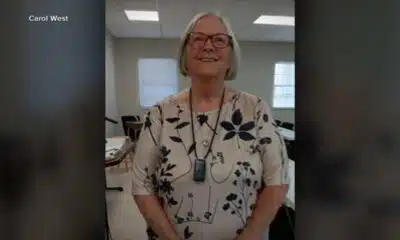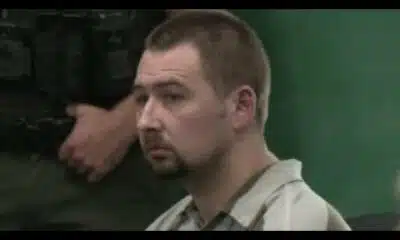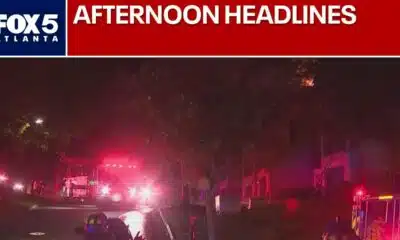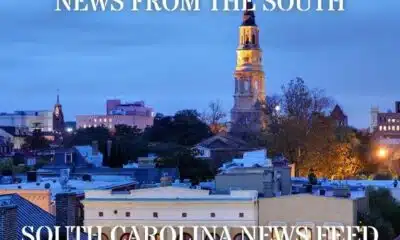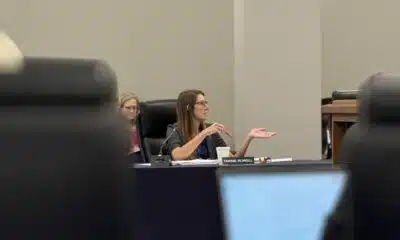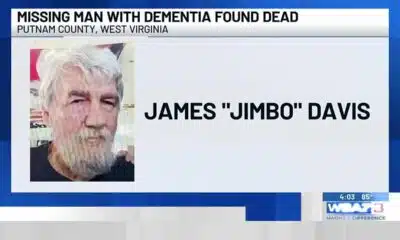Voters in South Carolina have expressed concern about conflicts of interest in letting lawyers pick the state’s judges. The response by lawmakers was to add more lawyers.
The slightly changed system will be tested in the coming months as three candidates challenging Supreme Court Justice John Few for his seat try to woo legislators, many of whom are lawyers who could possibly have cases before that court in the future. The state is one of only two that has a committee screen judicial applicants before putting those deemed worthy to a vote in the legislature.
That committee has three members of the House of Representatives who must judge their ex-leader, former speaker Jay Lucas. It also features a Columbia lawyer with a controversial cause in the state’s asbestos court whose authority to act as the head of companies that died decades ago will likely ultimately be decided by the state Supreme Court. And there are personal injury lawyers, like Sen. Luke Rankin, whose lawsuits have been heard in the appellate courts.
“You have built-in conflicts of interest that at times become actual conflicts of interest,” said longtime South Carolina journalist Rick Brundrett, editor of The Nerve – a product of the South Carolina Policy Council.
“This type of race is not going to improve the public’s trust in the judiciary at all. Until there are more serious reforms than what we got… nothing’s going to change.”
The Policy Council would prefer a system in which the governor makes appointments, but those picks must be confirmed by the legislature – the same way the federal government operates. Open elections are susceptible to out-of-state spending, as two recent supreme court elections in Wisconsin showed. That court has a 4-3 liberal majority and plenty of bad blood among the justices.
What South Carolina has only occurs there and in Virginia. And putting the power to pick judges in lawmakers’ hands means South Carolina’s legal community can select its favorites – there are more than 40 lawyers in the 170-member legislature, with many of them working at firms that do personal-injury cases.
Their influence was shown earlier this year when the business community tried to pass a reform measure to help restaurants that were made to pay so much in DUI cases that some insurers either stopped issuing policies or raised premiums for coverage so high that restaurants couldn’t afford them.
Sen. Shane Massey’s bill tripped repeatedly over amendments, to the point where he asked for a vote on them and declared he might not vote for the final version of his own legislation. Ultimately, it passed, with a carveout protecting asbestos lawyers.
Three lawyers in the House and three from the Senate make up half of the Judicial Merit Selection Commission. They’re joined by two members of the public, both lawyers, and four more citizens appointed by Gov. Henry McMaster – three are lawyers and one is a retired judge.
The old system was a 10-person committee with no input from the governor. In the Republican primary in 2024, voters (who could have been from any party, the state has open primaries), were asked if the state should adopt reforms to improve transparency and reduce conflicts of interest in how judges are picked.
More than 91% said yes. Months later, small changes were made: The governor can pick one-third of the JMSC and it can approve up to six candidates for a spot on the bench, up from three.
Further measures have been proposed but not adopted. One idea that has floated around is eliminating lawyer-legislators from the JMSC. Brundrett also said JMSC members should not be allowed to use it as a stepping stone to seek a judgeship in the future.
Lucas was a judge 30 years ago before his election to the House of Representatives, where he served for 24 years. From 2014-22, he was House speaker – one of the most powerful posts in the state – and he worked with all three current JMSC members from the House: Leon Stavrinakis, Micah Caskey and Jay Jordan.
Lucas could only serve three years until the mandatory retirement age if lawmakers pick him. JMSC members can recuse themselves from a vote on a candidate, but a message to the commission’s attorney asking whether anyone ever has was not returned.
Brundrett worries that nothing stops JMSC members from recusing themselves but still discussing the candidate’s qualifications with others in closed-door meetings.
“This is the incestuous nature of the screening and selection process,” he said. “Should the former House speaker get a seat on the Supreme Court and upend a guy that’s already been there? Is that really smart, to just do a favor and keep a buddy on their court for three years?
“Is that in the best interest of the public? Obviously, no.”
One of Gov. McMaster’s appointees to the JMSC this year was Peter Protopapas, a lawyer selected by former chief justice Jean Toal, now head of the state’s asbestos docket, to act as a “receiver” for companies that no longer exist but are sued in asbestos lawsuits.
Using that authority, he sues the defunct companies’ former insurers over old policies, obtains multimillion-dollar settlements, takes some of the money for his contingency fee and places the rest in Delaware funds whose books are not available to the public.
Earlier this year, Justice Few was among a unanimous majority that pushed back at the arrangement. A May ruling affirmed Protopapas’ receivership over one company but said “it is an extraordinary remedy reserved for the most extraordinary cases. It is not to be used in the typical default case.”
Companies fighting Protopapas are taking this to mean he should not be allowed to take control of dead companies, especially when there has been no judgment against them. This and other issues in the asbestos court often kick up to the state’s appellate courts.
One lawyer Protopapas uses in his court fights is G. Murrell Smith, Lucas’ successor as House speaker. Few could face long odds in gaining their favor when pitted against Lucas and Court of Appeals judge Blake Hewitt, a former plaintiff lawyer with asbestos experience who clerked for Judge Toal. Administrative law judge Ralph Anderson III is the fourth candidate.
“Right now in South Carolina, the power to elect the higher-level judges in this state lies in the Legislature,” Brundrett said. “Despite the so-called ‘reform’ of last year, that power is still there.”









